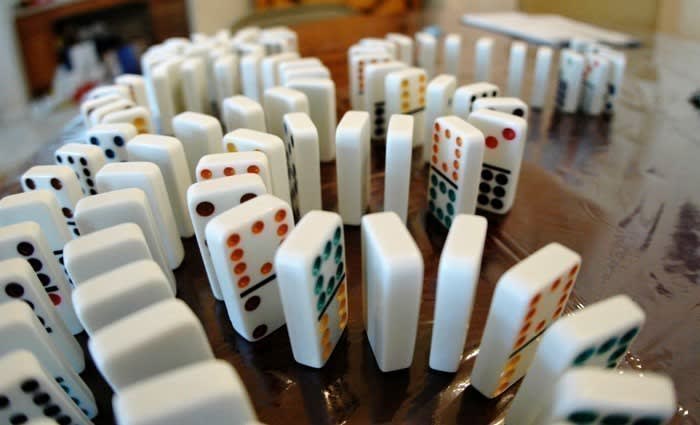Forecasts of housing price collapse are a dime a dozen
Pinned to the wall beside my computer is a report I wrote in June 2015 entitled “Top 20 worst predictions about Australian property markets”.
It contains a stunning line-up of doomed forecasts from the previous six or seven years about our property markets. They all have two things in common: they all predicted massive price decline, and none of them was correct.
But they’re still out there and media never tires of them. Forecasts of price collapse are a dime a dozen in mainstream media.
In many cases, I suspect, the forecasters don’t really believe their own statements. The objective is to generate publicity, truth notwithstanding. Apart from anything else, no one (apart from me) ever checks to see how the forecasts of the past have turned out, so the fallout for false prophets is zero.
So if American spruiker Harry S Dent pops up in Australia next year and predicts a 50 percent collapse in property values, he’ll get masses of free publicity for his seminar tour or book launch, despite having made that prediction twice before (in 2011 and 2014) and been proven wrong by subsequent events.
Predictions of real estate Armageddon in Australia have become common. One of the most recent was widely reported around Australia in early September. This headline appeared in The Australian: “Australia six weeks from a housing collapse, US report warns.” Time is well and truly up on that forecast and we do not appear to have a housing collapse.
The Washington-based International Strategic Studies Association said: “We estimate that Australia has about six weeks or so to turn this situation around, otherwise there would be a massive hit on property valuations and the building trades.”
Its president delivered quite a rant on the subject. You have to wonder why serious newspapers would report such nonsense, particularly given the failure of other similar predictions since the start of the century.
Here’s another example: in October 2015 the Sydney Morning Herald made a huge front-page splash with this headline: “7.5 percent - house prices tipped to slump.” The 7.5 percent was in huge type and dominated the page.
The article said “Australian house prices” would fall 7.5 percent in 2016 and the decline risked causing a recession. It quoted reports from several investment banks – Macquarie, Credit Suisse and Bank of America Merrill Lynch – which all made dire forecasts.
One said property investment in Australia was “riskier than the equity market”, especially in Sydney. Another said the RBA would be forced to lift interest rates in 2016 to tackle high inflation. How wrong did they get that?
When will media ever learn that economists are not real estate specialists and seldom get it right when they drift outside their comfort zones (getting it wrong on the economy) and delve into property prognostication? They regard Australia as a single property market and their understanding of the different market dynamics around Australia could be written on the back of a postage stamp – in crayon.
Other media outlets made big of the same material. The news.com.au website ran this headline: “Five months until property bubble bursts”. The article began: “FIVE months. That’s how long before house prices start to fall, according to the latest major investment bank to call the peak in Australia’s housing cycle. ‘Credit growth, auction clearance rates, house prices, settlement volumes and the dollar value of settlements are all showing signs of slowing, albeit from lofty levels,’ analysts from investment bank Macquarie said in a note today, The Australian reports.”
In November last year the Australian Financial Review ran a major article based on the forecasts of ANZ economists, who predicted that Australian house prices would fall in 2016 by “less than 10 percent”. There, again, we had that fatal formula for failed forecasts: economists, a perspective that Australia is a single market and a gloomy outlook based on a misreading of the signals.
Around the same time, the clown prince of failed forecasting Professor Steve Keen was at it again, still predicting a property crash – as he famously did in 2008 and every year since – and once gain getting it wrong.
Also around the same time, Smart Property Investment ran this headline: “Outer suburb markets could halve in value”, referring to the outer ring suburbs of Sydney. A year later, it’s pretty clear than suburban values have not dropped 50 percent.
In January this year the same magazine reported more dodgy predictions from economists under the headline “Investors warned about looming price declines”. Leading that particular charge was the man with worst record of all in real estate forecasting, AMP Capital chief economist Shane Oliver.
Oliver is probably the only guy who has made negative forecasts about housing prices than Steve Keen, and with an equivalent track record of success. It was Oliver who famously declared in 2005 that there would be no growth in Australian property prices any time in the next 10 years. Oh dear.
He’s made many similar statements over the years, with the same level of success. But he was back for more in January this year, stating that the Sydney market had become so stretched that prices were likely to fall.
Also mentioned in that SPI article was Fitch Ratings, which claimed that “house price growth is set to decline significantly in 2016, with the possibility of entering negative territory …”
According to Fitch Ratings Australia managing director Ben McCarthy, the downturn would be caused by “reduced demand in Sydney and Melbourne as population growth declines and the market reaches limits of affordability and investor demand and interest recedes".
If there’s a group that has even less success at calling property market outcomes than bank economists, it’s the ratings agencies whose track record is just dismal – and whose motivations are particularly shallow.
Terry Ryder is the founder of hotspotting.com.au. You can email him or follow him on Twitter.
